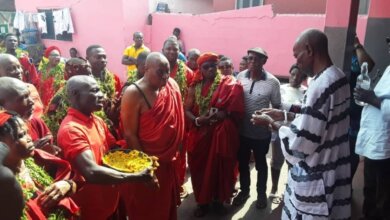DNA Research Provides more Insight into African History

Originally published on Nature Africa by Elsabe Brits under the title 'A Rare Look at Ancient African Societies'
The oldest DNA samples discovered in sub-Saharan Africa yet, shed light on an often underrepresented period in African history.
A team of researchers from the US and Africa have studied African ancient DNA samples that go back ~18,000 years, shedding new light on the population history of sub-Saharan Africa. The study, published in Nature, shows the continent is still under-represented in ancient genomics.
“Prior to this work, the oldest DNA preserved south of the Sahara, was from a person who lived about 9,000 years ago in Malawi,” said Mary Prendergast, associate professor of anthropology at Rice University, and co-author of the study.
“What is so exciting about this study is that it really breaks the ‘tropical ceiling’ for ancient DNA preservation, because it was previously thought that DNA does not preserve well and long in warmer climates.”
Within the last 5,000 years, there has been massive demographic changes on the continent. This started with the spread of herding south of the Sahara and later with the spread of farming, as early as 4,000 years ago, but especially during the last two millennia.
Read Also: Mozambique Unveils World’s Largest Population of Africa’s Rarest Falcon
There were major migrations and new intermingling of groups of people, leading to the loss of some ancient genetic lineages, covering those of foragers – people who hunted, gathered and fished.
For Prendergast, studying the genomes of people who lived long before – between 18,000 and 50,000 years ago – opens a window unto the world of African foragers and their society and art. The study offers a rare insight into this period in Africa’s history. “Less than 1% of the published ancient genomes in the world come from Africa,” said Prendergast.
“Scholars are realizing how critical it is to better understand the African past and its relevance to the present” she added, calling for real change, including conscious effort “to build capacity locally.”
Rebecca Ackermann, co-director of the Human Evolution Research Institute at the University of Cape Town, called for greater involvement of African researchers to improve leadership and output in genomic research on the continent.
Abeeb Lekan Sodiq is a Managing Editor & Writer at theafricandream.net. He is as well a Graphics Designer and also known as Arakunrin Lekan.





